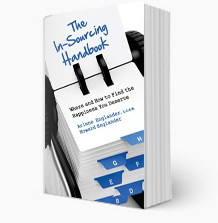Integrity versus despair is the last stage of Eric Erikson’s theory of development. If one is fully matured, he posits, the result is wisdom, a sense of our integrated identity. Conversely, lacking a sense of being fully realized, the residual feeling is hopelessness.
This occurrence normally begins to be part of our awareness around age 65.
But there is nothing “normal” in the time of the COVID-19 pandemic!
Our lives are on pause, and people of all ages are trying to make sense of who they have been and who they will be in the new normal. Absent the familiar props, some of us will lose heart and simply run on idle. And to the contrary, some of us will use the hiatus as an opportunity to ask, who am I at this point in my life and do I want to continue ‘as is’ going forward?
The idea of re-inventing one’s self is common as we continue to grow and learn about ourselves. But there is no point in moving on if the same stumbling blocks that got in the way of your happiness are not left behind! You can change jobs, swap partners, and relocate to new geography but as the saying goes, “wherever you go, you are there.”
Here are the important questions to ask yourself while marking time.
Who did you satisfy at the expense of your true identity? Are you living out your parents’ expectations? Where did you “give in” and become someone you are not? Are you “living an act,” appearing to the world as a type of person popularized by social pressure rather than living faithful to your own morality and aesthetic?
What is fulfilling and what is lacking in the here and now? Can you see with clarity the difference between inner happiness (heart centered) and societal definitions of a successful life (ego-centered)? Think back on your life… what gave you meaning, pleasure, and inspiration? Have you come to grips with the realities that exist in your life, accepting ‘what is’? Have you completed the closure necessary to move forward with your life?
What continues to cause you discomfort and emotional pain? Have you looked honestly at the events of the past that revealed less than admirable behavior? Have you moved beyond berating yourself with “if only I had done this, tried that?” and instead, made amends and taken responsibility rather than blaming others? Have you forgiven yourself and seen the mistakes of the past as hard lessons learned; lessons that made you who you are?
For some, it takes a lifetime to answer these questions. The pandemic has jarred us to confront them amid the uncertainty.

